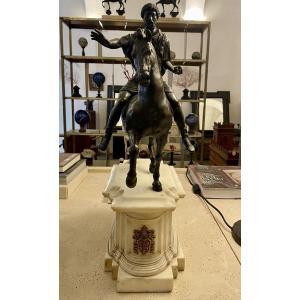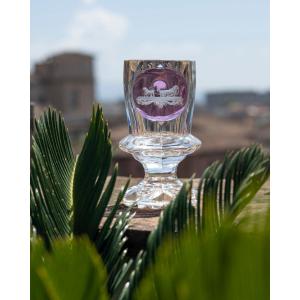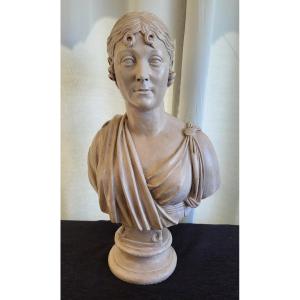In 1801, the Treaty of Aranjuez proclaimed her husband King of Etruria, a kingdom created from the Grand Duchy of Tuscany in exchange for his renunciation of the Duchy of Parma. They arrived in Florence, the capital of the new kingdom, in August 1801. During a brief visit to Spain in 1802, Maria Luisa gave birth to her second child, Maria Luisa. Her husband's reign in Etruria was cut short by his poor health. He died in 1803, at the age of 30, following an epileptic seizure. Marie-Louise became regent for her son. During her government in Florence, she tried to gain the support of her subjects, but her son's reign was interrupted by Napoleon who forced Marie-Louise to leave with her children in December 1807. As part of the Treaty of Fontainebleau, Napoleon annexed Etruria.
After a fruitless meeting with Napoleon in Milan, Marie-Louise took refuge with her family in Spain. The Spanish court was deeply divided and a month after her arrival, the country was weakened by the mutiny of Aranjuez which forced Marie-Louise's father to abdicate in favor of his brother Ferdinand VII. The latter, on Napoleon's decision, ceded the throne to Joseph Bonaparte. Napoleon summoned the remaining members of the Spanish royal family to France, and when they left on 2 May 1808, the citizens of Madrid rose up against the French occupation. In France, Marie-Louise was reunited with her parents. She was the only member of the Spanish royal family to directly oppose Napoleon. After her secret escape plan was discovered, she was separated from her son and placed with her daughter in detention in a convent.
She regained her freedom in 1814, when Napoleon fell. In the following years, she continued to live in Rome in the hope of recovering her son's former estates, Parma and Piacenza. To make her case, she wrote her memoirs, but was rejected by the Congress of Vienna, which gave Parma to Archduchess Marie-Louise. As a consolation, the congress created the Duchy of Lucca for her and her children. Initially reluctant to accept this agreement, Marie-Louise did not take over the government of Lucca until December 1817. As reigning Duchess of Lucca, she did not respect the constitution imposed by the Congress of Vienna and governed from her palace in Rome, where she died in 1824 from cancer.
































 Le Magazine de PROANTIC
Le Magazine de PROANTIC TRÉSORS Magazine
TRÉSORS Magazine Rivista Artiquariato
Rivista Artiquariato